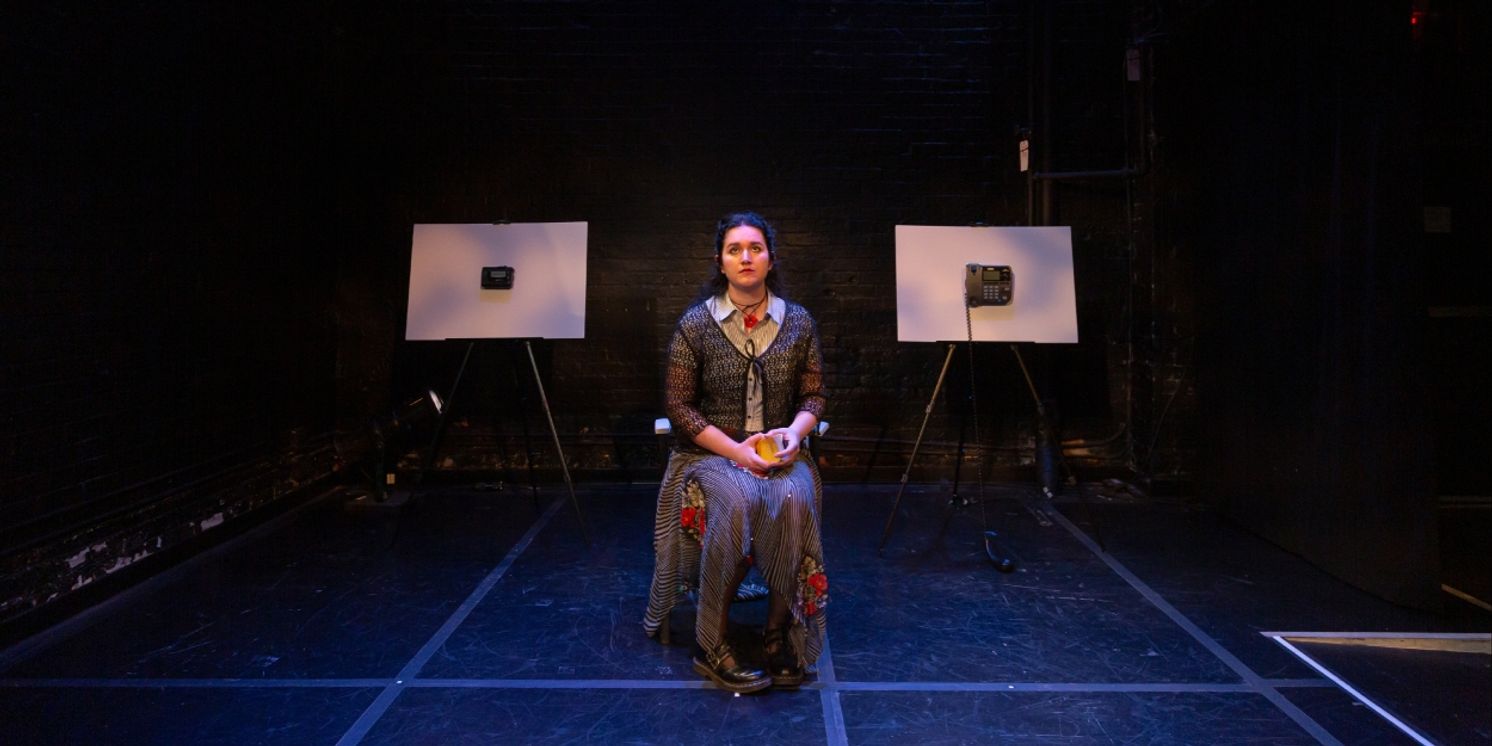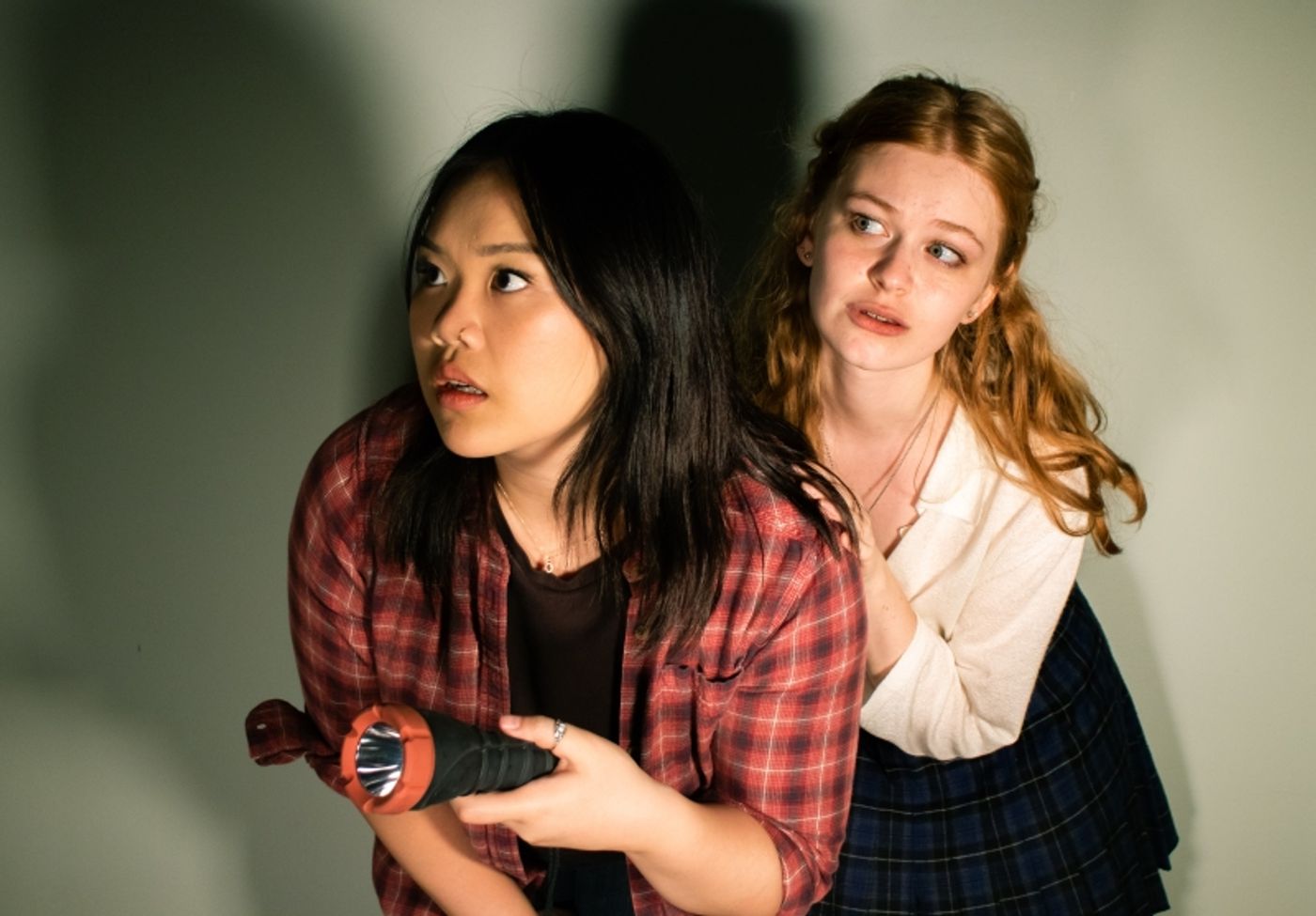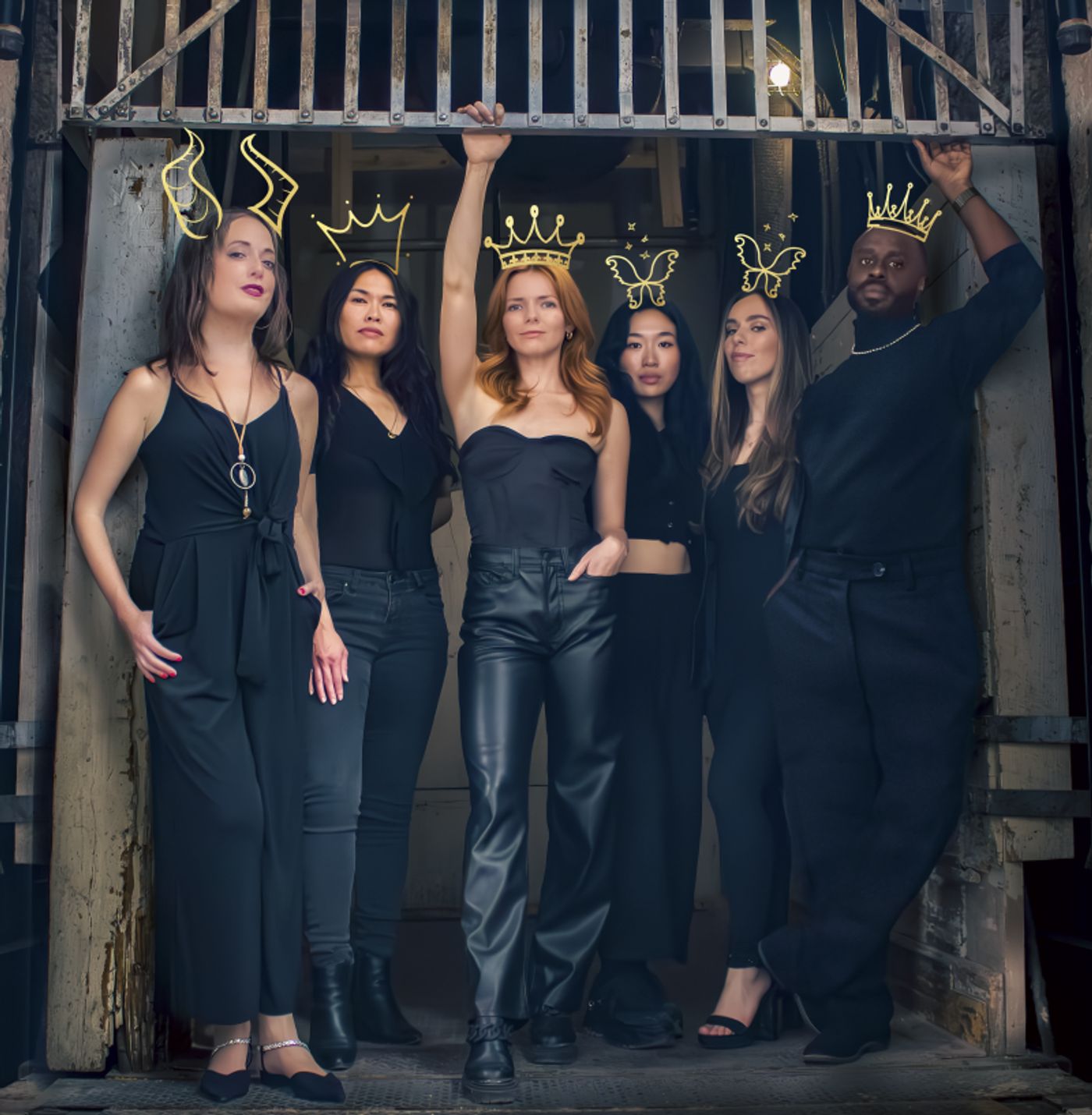Review: TORONTO FRINGE FESTIVAL: DAY 7
Reviews of Gulp, Bus Stop, and Rosamund


GULP
GULP, written and performed by Frosina Pejcinovska, wasn’t on my radar at the start of the Fringe. I’m glad I took a chance on it, because the intricate, twisty story of a codependent female friendship gone wrong and its remaining member’s attempts to move on is tense and absorbing. Sunday (Pejcinovska) has engaged the services of an off-duty psychiatrist to get her life in order after things went terribly wrong with her manipulative and demanding best friend. As her questionably ethical relationship with the psychiatrist deepens in a not particularly healthy way, Sunday is plagued by old phone messages from The Friend (Brynn Bonne, in an animated voiceover performance), which play at random from her malfunctioning answering machine.
Pejcinovska sets up a detailed, eerily effective picture of a friendship that rings true even over the phone; her characterization of both Sunday and her friend is rich and descriptive. It’s obvious that everything is not as it seems, and that we’re only hearing Sunday’s side of the story; the fact that she’s repeating the codependent pattern with her counsellor helps to emphasize that she’s an unreliable narrator. But she feels real and sympathetic as she speaks to the audience, begging us to understand her point of view. William Dao’s effective, simple direction puts the focus mostly on the performer, and Pejcinovska is a writer and performer to watch.
Photo of Frosina Pejcinovska by Barry McCluskey
BUS STOP

Last year’s Best New Play winner Helen Ho is back with a new comedy mystery about a murder on a MegaBus. Emily Orchid (Jobina Sitoh) and Daniela Crest (Màiri Jacobs) are coming back from New York on a high school graduation trip; they’ve been friends since starring in a TVO series as twin child detectives, but have drifted in recent years. When a mad scientist with a kaiju fixation (Noah Rudder) ends up dead, they reconnect, competing to solve the mystery with a father-son pair of TV detectives (Ethan Magnus and Isaac Kuk) who also happen to be on the bus.
Ho’s gentle, jokey writing relies heavily on outsized quirk, and your enjoyment of the show is likely to hinge on whether you vibe with that kind of humour. There are interesting aspects to the mystery, but it alternately feels like there are too many characters (things are very busy and chaotic) and not enough (the list of viable suspects is slim). The heart of the show, the relationship between two long-term friends on the cusp of adulthood, gets a bit lost in the chaos, blunting the emotional impact of the resolution.
The energetic, young cast members gamely throw themselves into the roles; Ho’s static staging could use some tightening, so that the rapid-fire jokes land more effectively. The staging could also give us a better sense of place, as it never exploits the potential claustrophobia of a mystery set on a bus, and the characters are free to wander about the stage.
Photo of Jobina Sitoh and Màiri Jacobs by Shebonti Khandaker
ROSAMUND

Andrew Seok’s musicals in the Jeanne Lamon Hall of Trinity-St. Paul’s United church have become a Fringe staple. They feature lush, sweeping ballads and powerhouse, dynamite casts and musicians, certainly incredible performance value for your scant eighteen bucks. They’re also full of predictable lyrics and frustrating untapped potential.
ROSAMUND, adapted from the classic Sleeping Beauty story, is probably his tightest show yet. In this iteration, the teenage Rosamund (A.J. Bridel) is a spunky, Brave/Tangled-style heroine who refuses to be a damsel in distress, instead rescuing the seemingly useless prince (Jeff Irving) before finding out he’s her betrothed. A lot of ROSAMUND feels Disney-ready, and its meet-ugly love story is often (prince) charming, assisted by Bridel and Irving’s committed performances.
Seok’s idea to change the evil fairy Parisa’s (Gabi Epstein) motivation to righteous anger over the King’s lack of response to a famine is a good one. However, there’s no explanation, even a throwaway line, about why this all-powerful fairy couldn’t do anything to help either, making her righteousness feel hollow. More disappointingly, Parisa’s motivation has nothing to do with Rosamund’s personality, journey or growth (in fact, there’s a physical journey, but not much character growth, other than Rosamund deciding that the prince isn’t as bad as she thought he was). They’re protagonist and antagonist, but only by proximity, meaning that the climax isn’t as compelling as it could be. The engaging Epstein elevates the role, and seems to be having a ball chewing the scenery.
The beautiful melodies are solo ballad-heavy, and the show comes alive in the three ensemble numbers, where the threads weave together and Seok's skill is on full display. With such a large cast, he could get more creative than switching between solos and full-cast numbers; for example, it seems like a crime not to use his talented trio of good fairies in a tripartite number. One clever song where the prince lists his positive attributes is reminiscent of Into the Woods; there are too many lines, though, where you can guess the rhyme immediately and simply wait for it to arrive.
The hall’s lack of A/C makes the 97-minute run time a long, sweaty haul (though Seok’s aside about it is the night’s funniest line). Even with the feeling of untapped potential, you’re getting a lot of bang for your buck; there’s no denying the beauty and power of hearing so many gorgeous voices belt lush musical lines.
Photo of Gabi Epstein, Rhoslynne Bugay, A.J. Bridel, Heeyun Park, Lily Librach, and Kyle Brown by Andrew Seok
Reader Reviews
Videos

